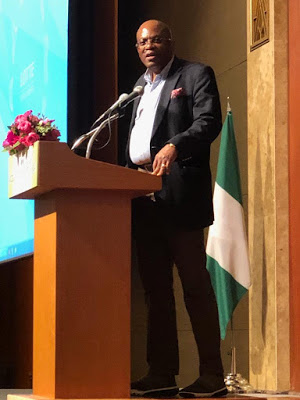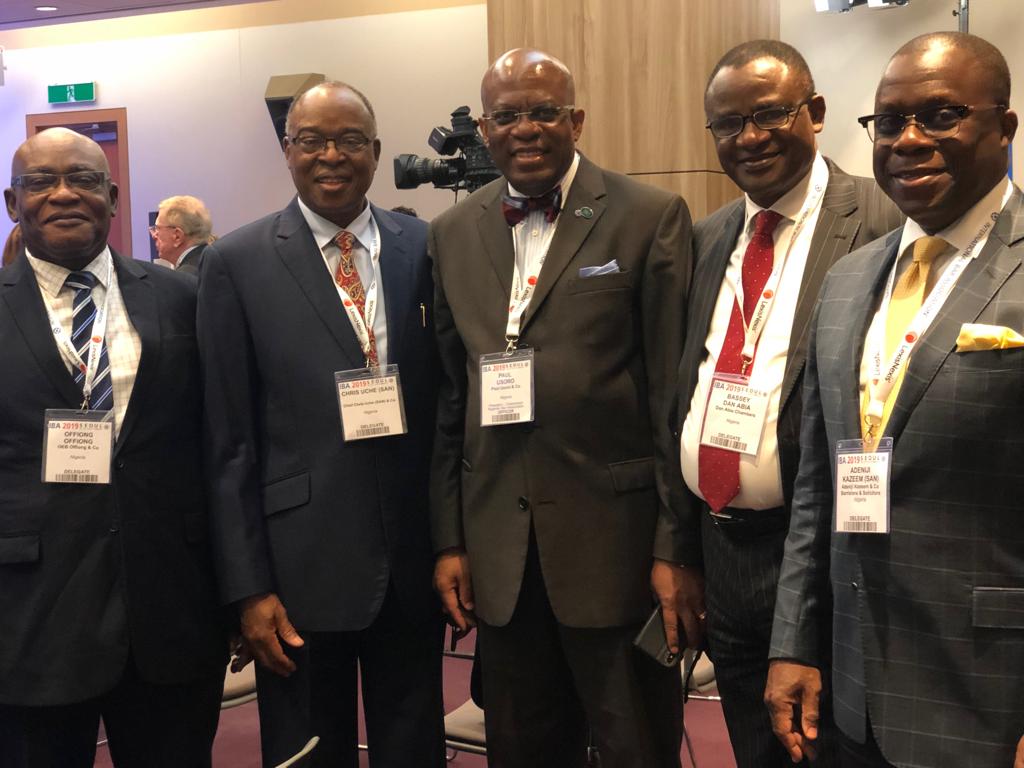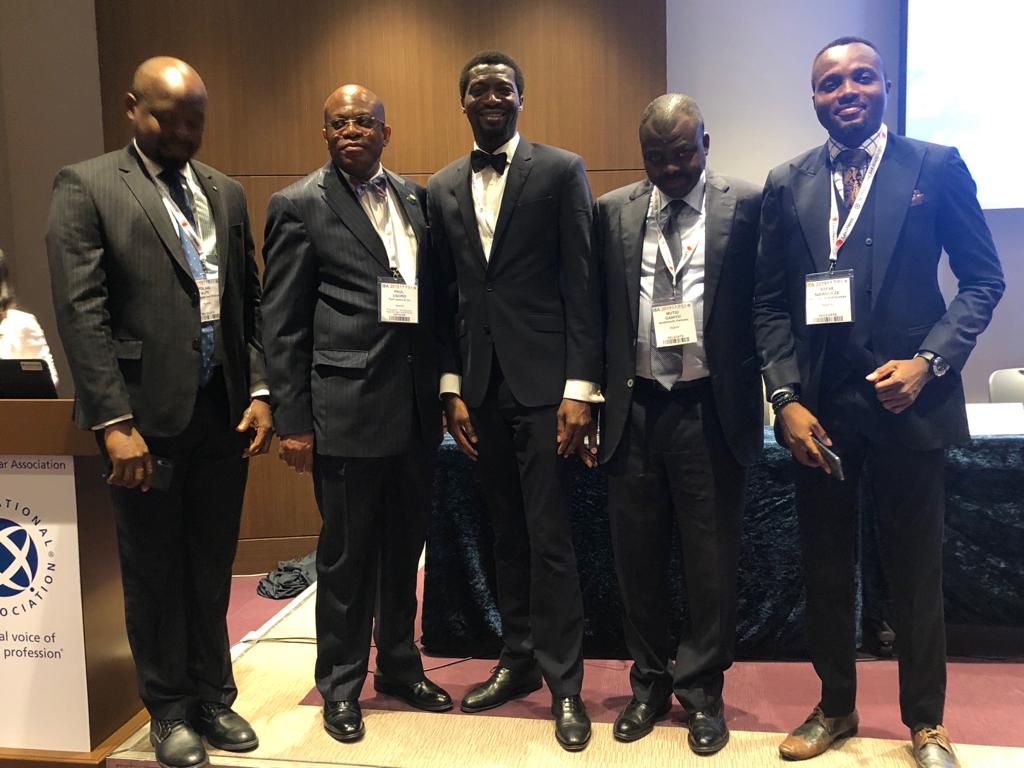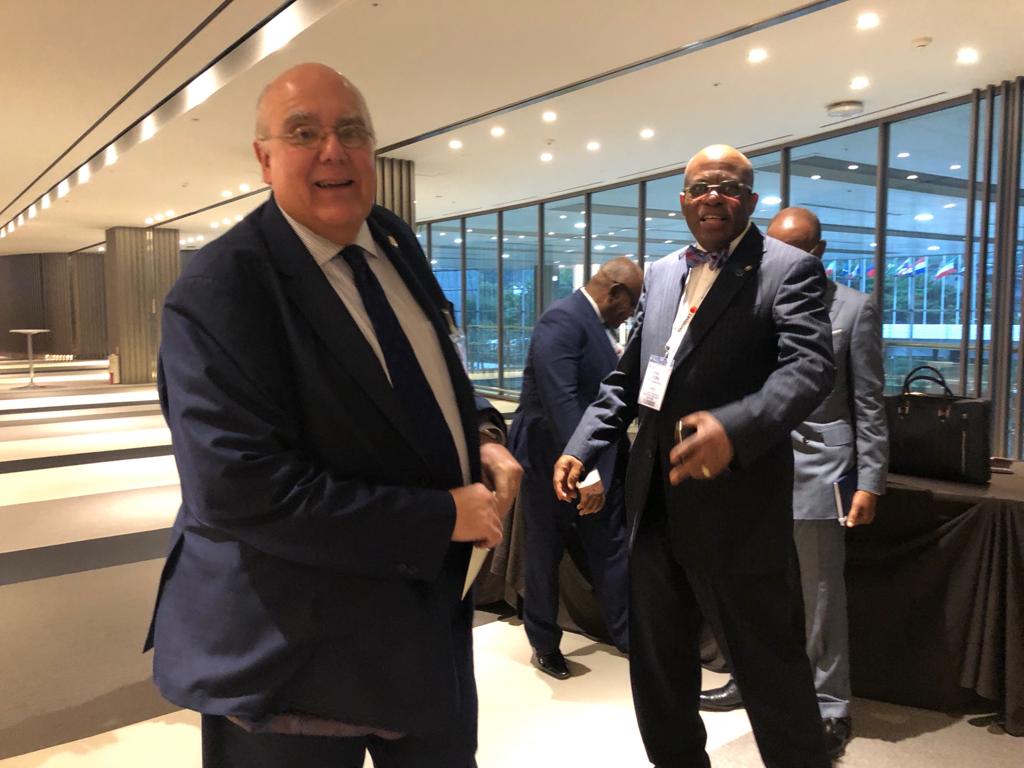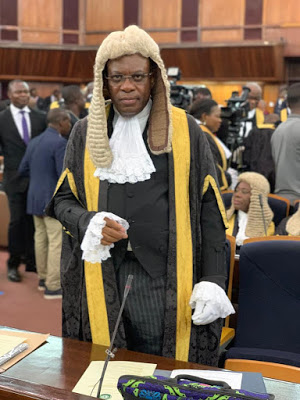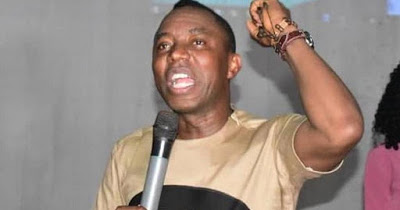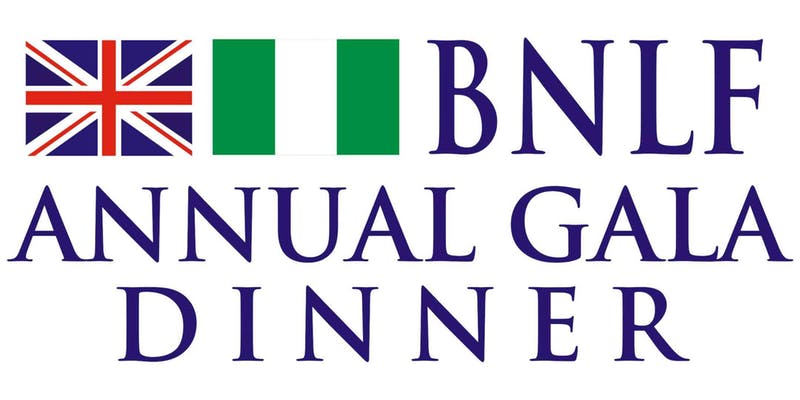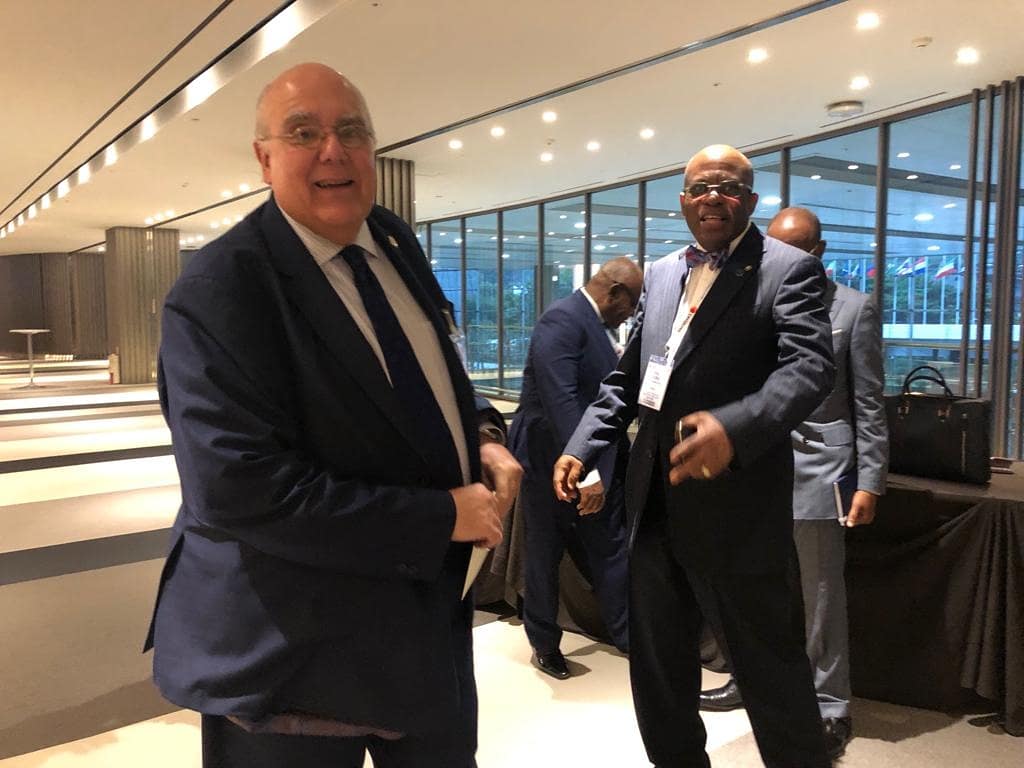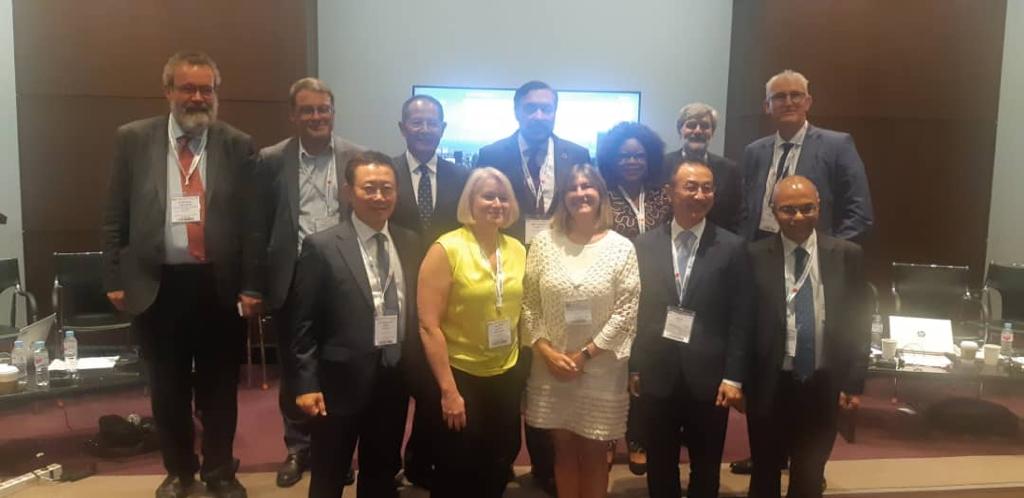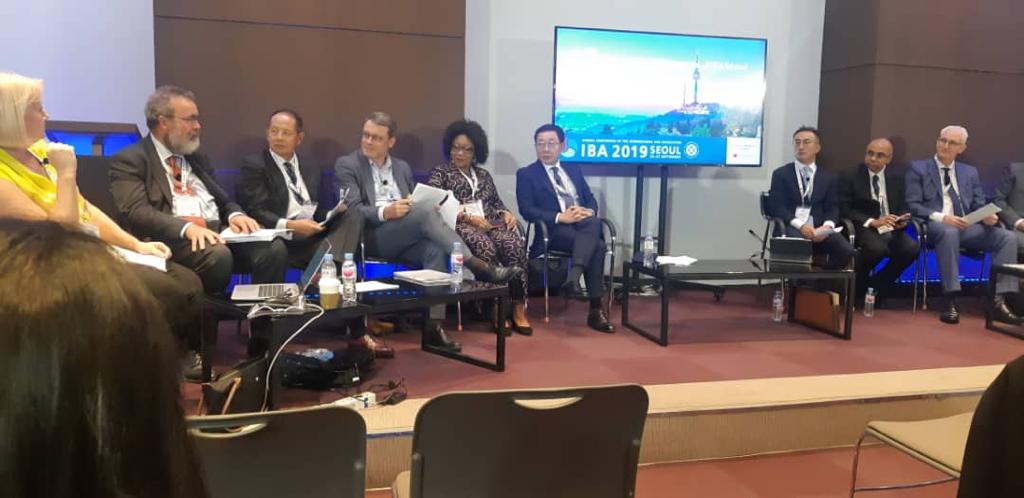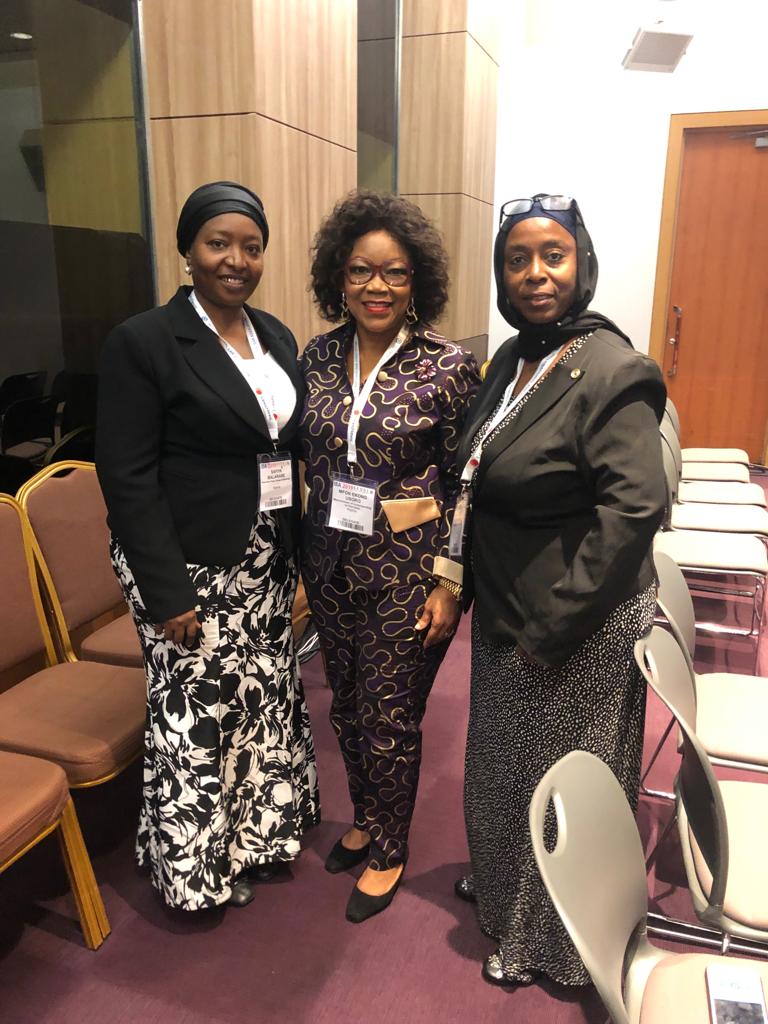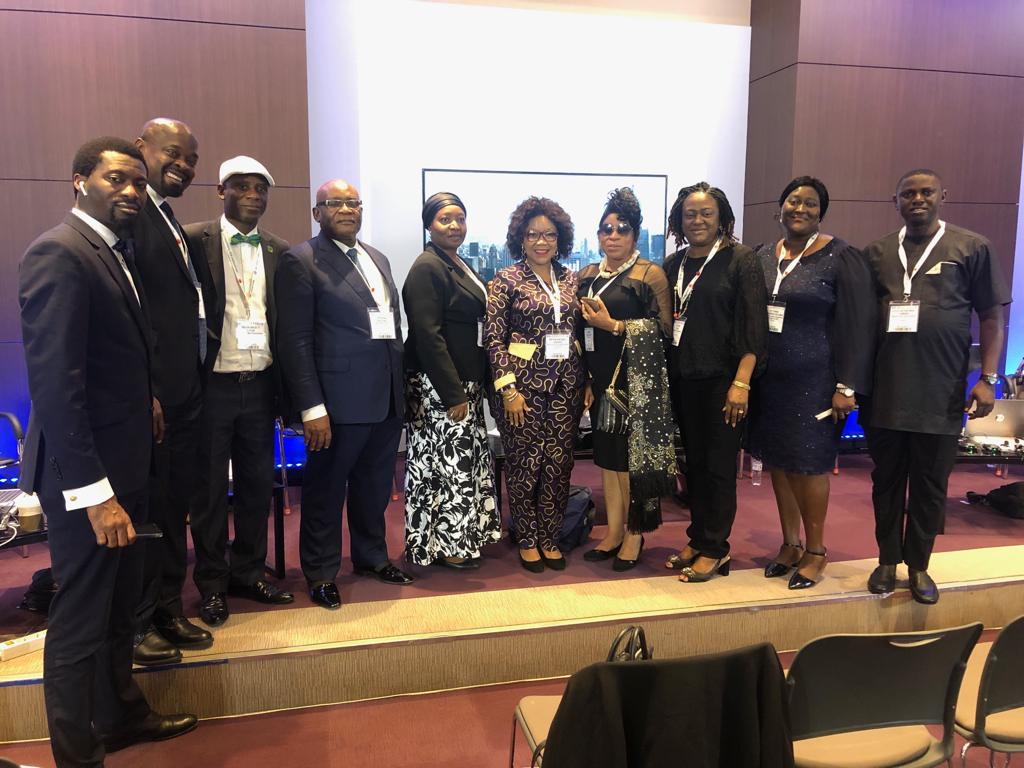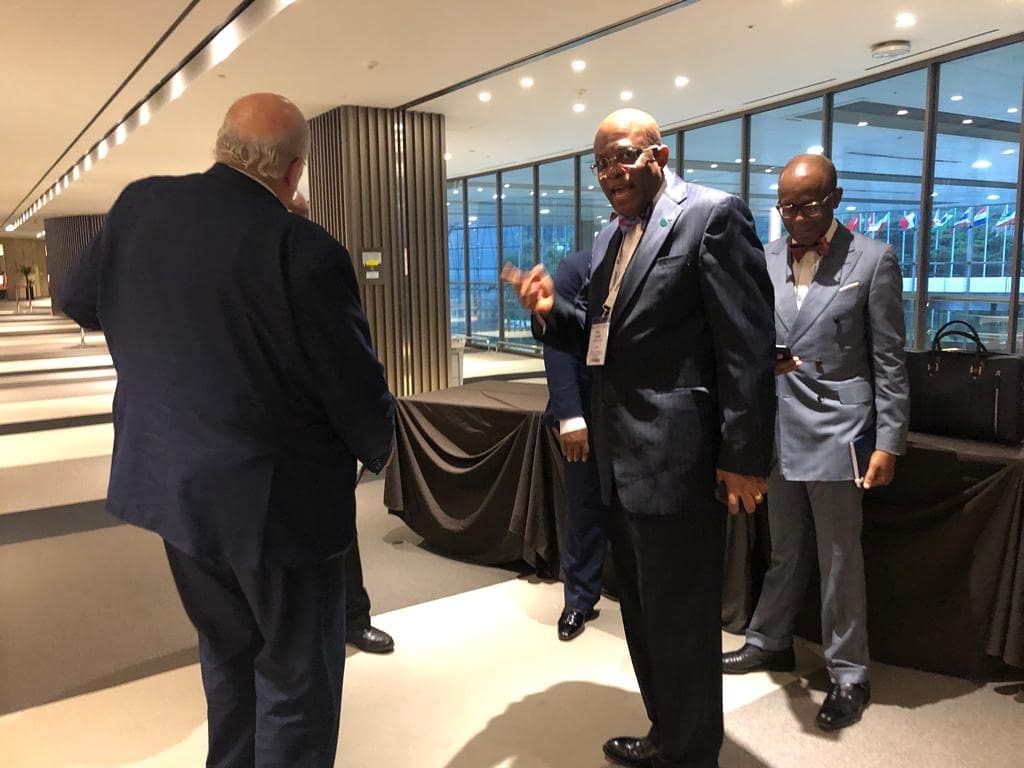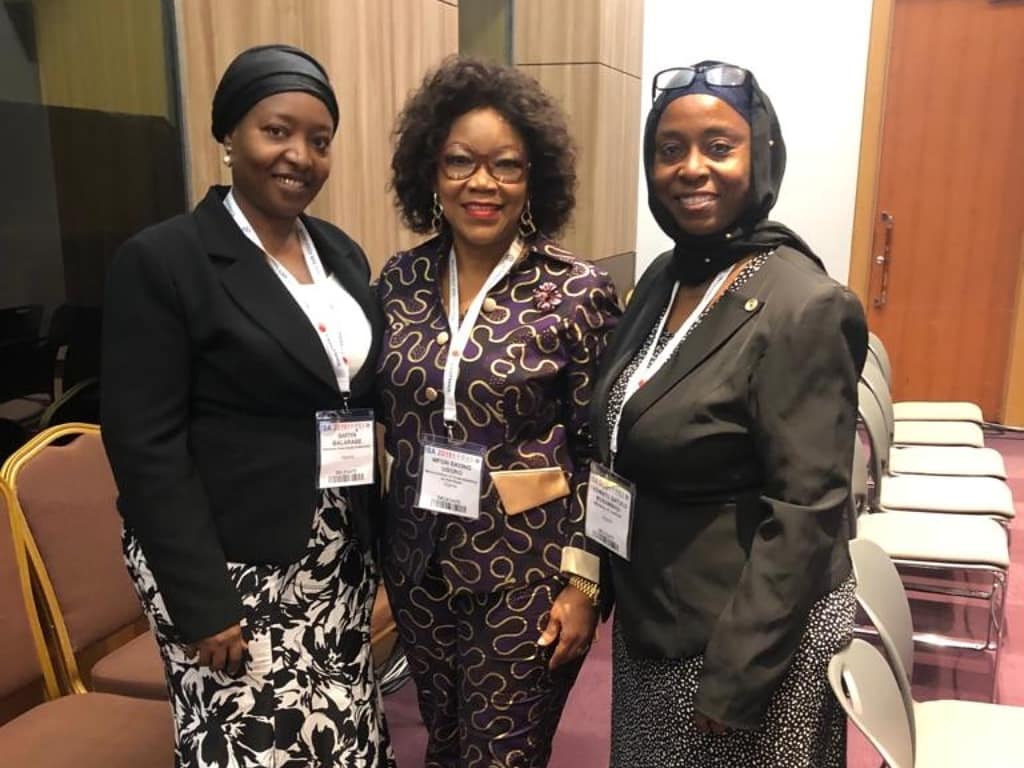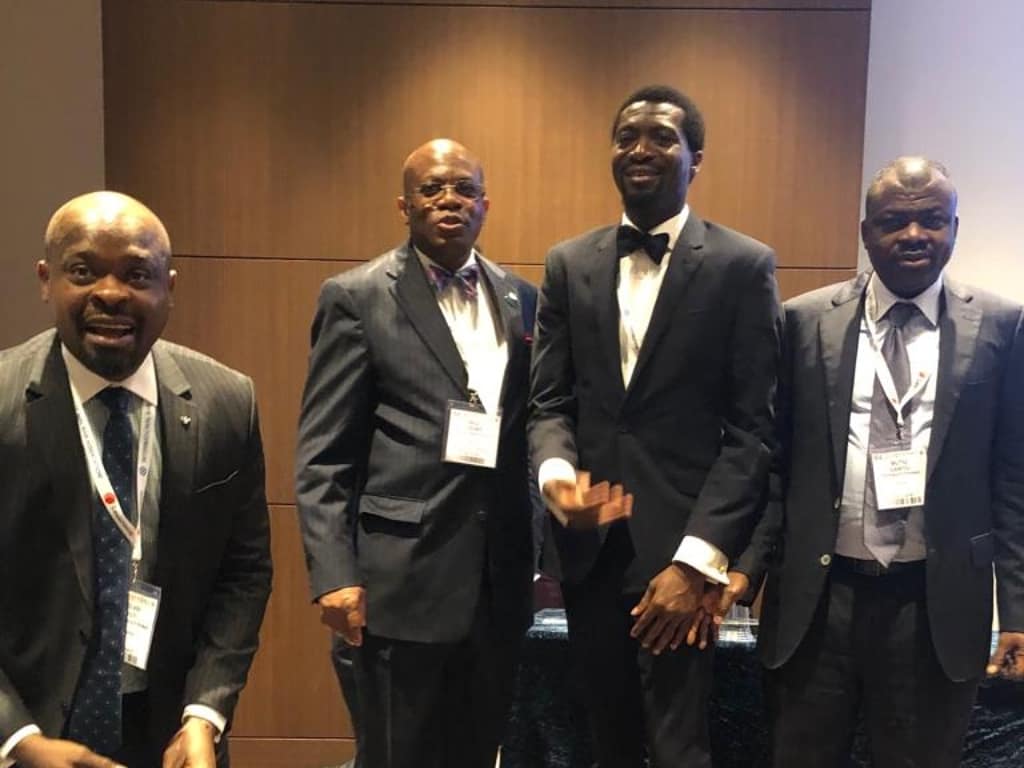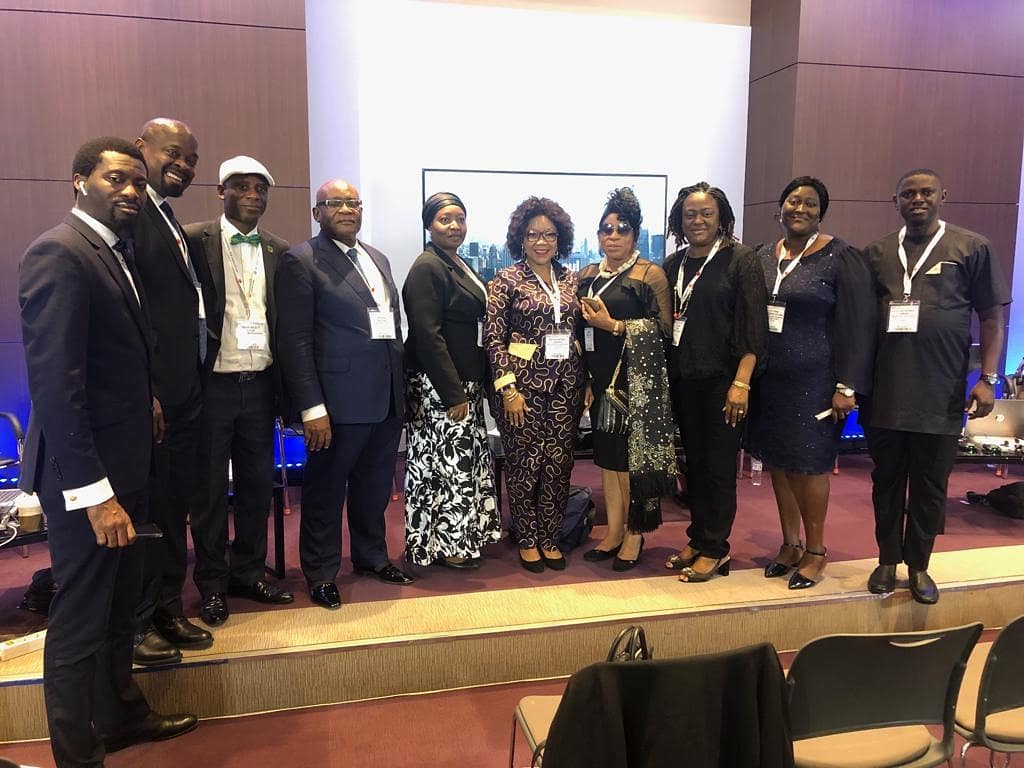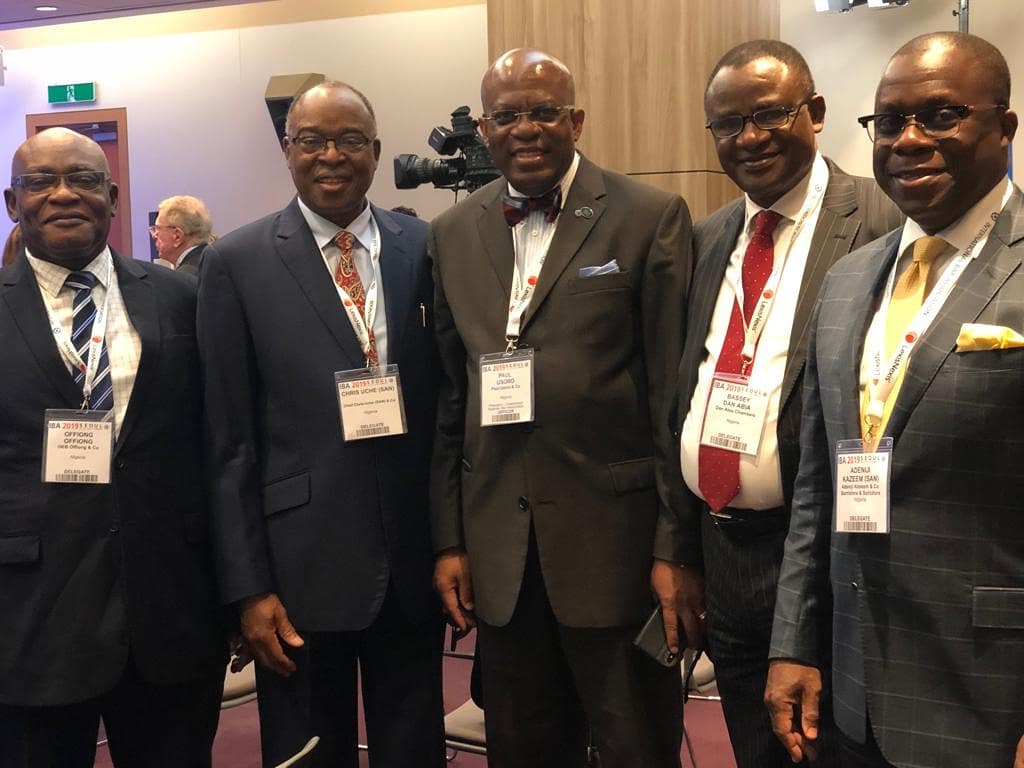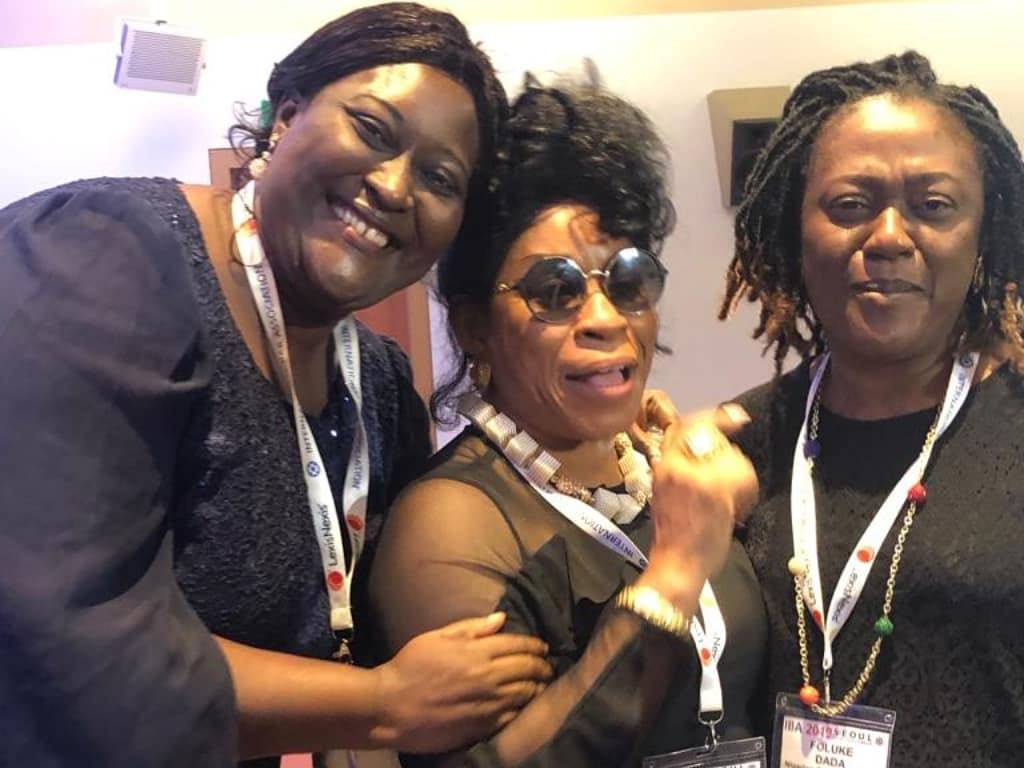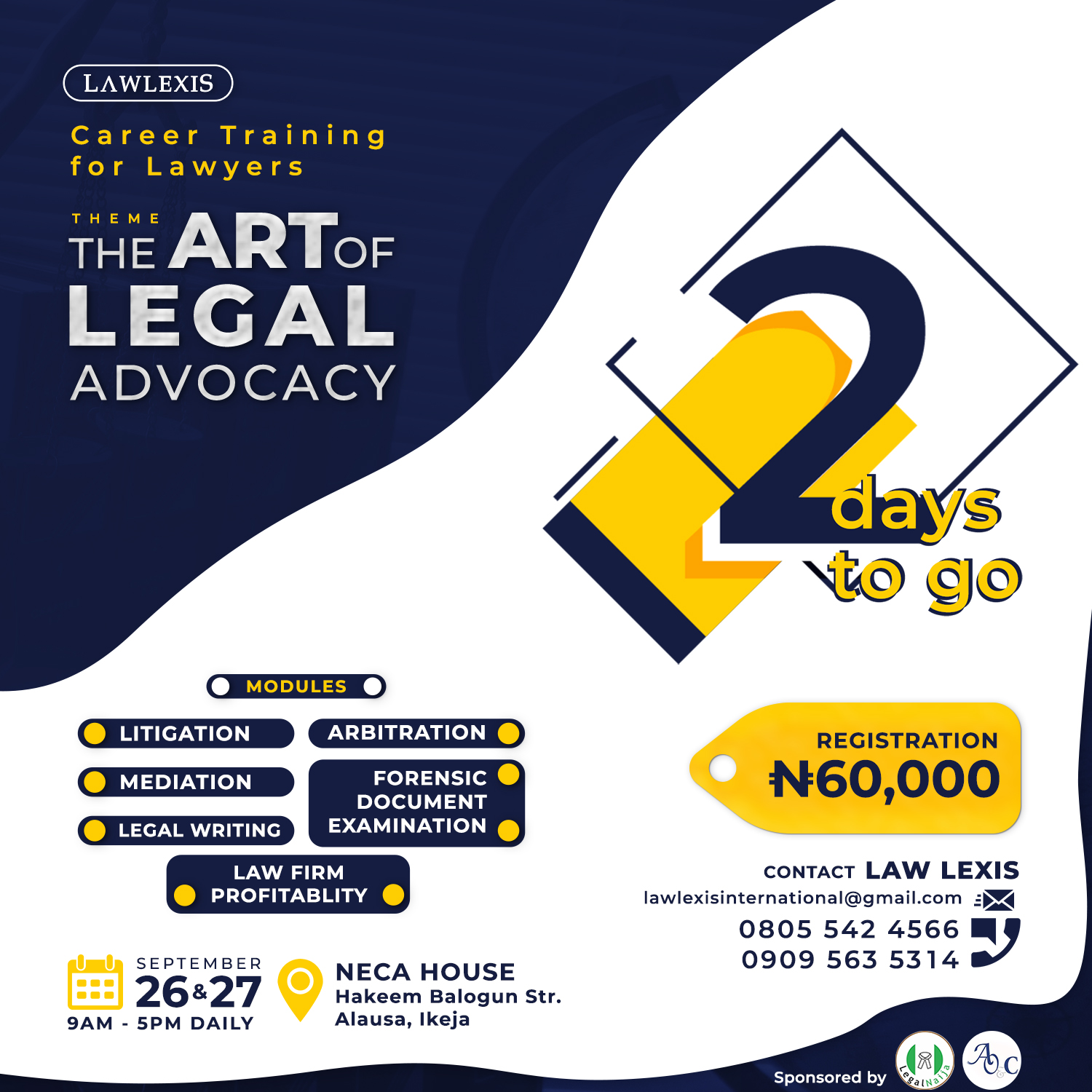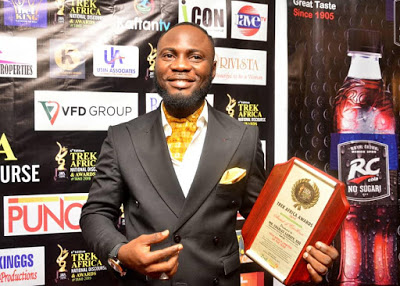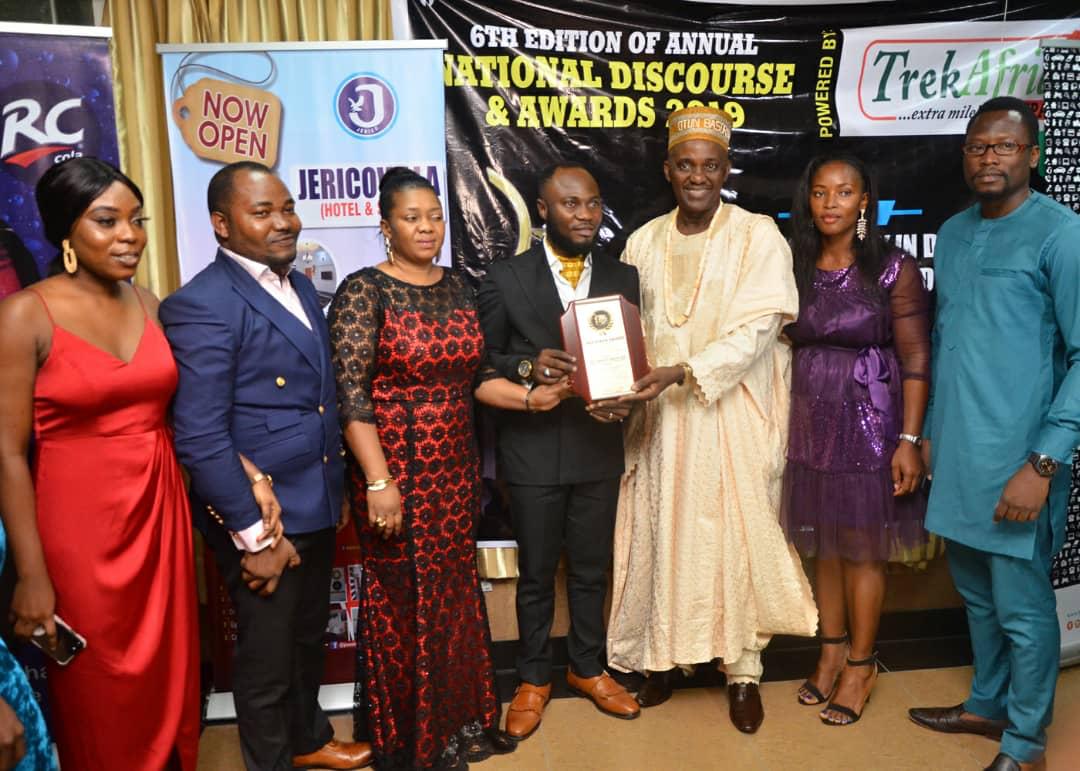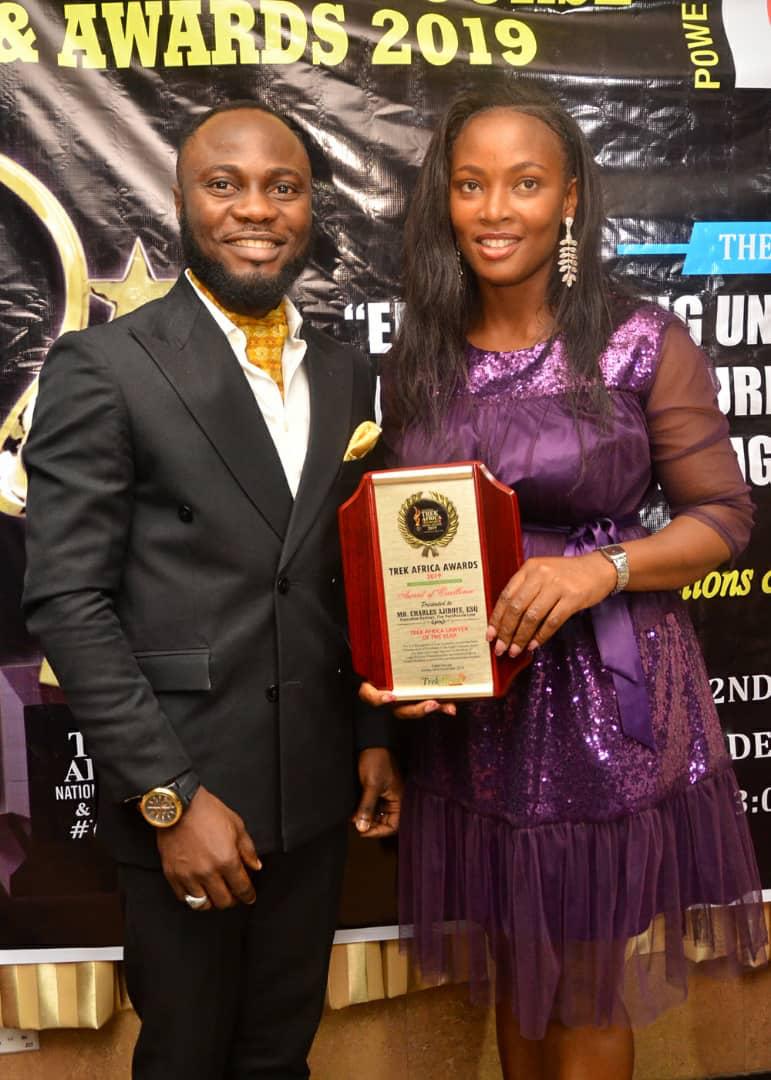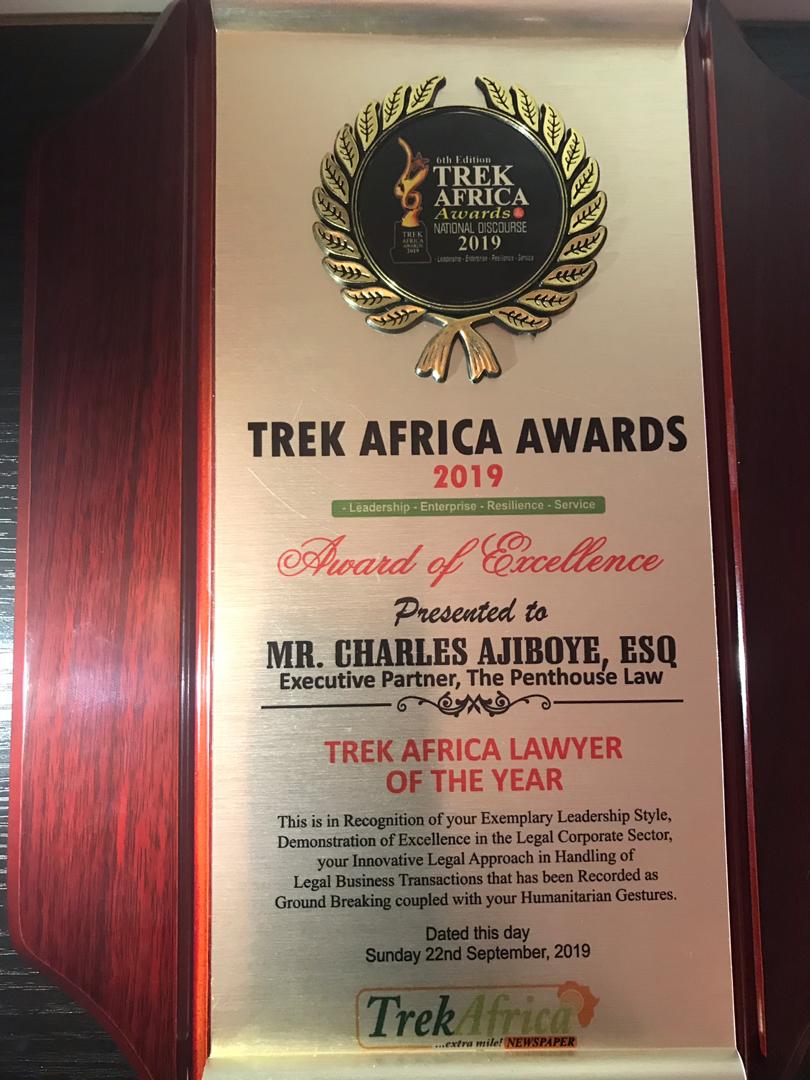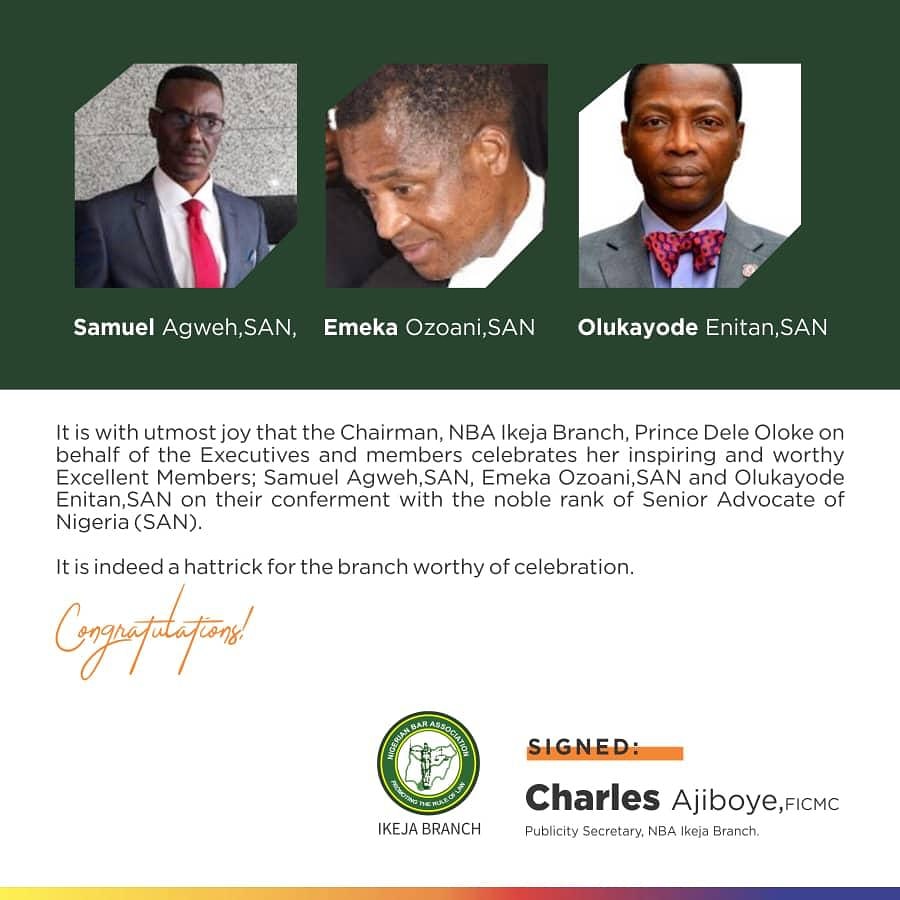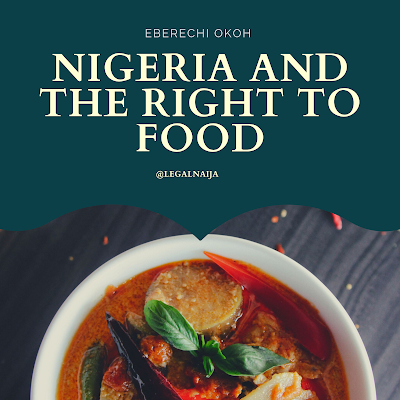“If You Take Care of The Rule of Law, The Rule of Law Will Take Care of You” – IBA
31 August 2018
“We are strong only when united and together. Divided, we’re vulnerable and subject to external and devastating attacks – and these are the dangers we face daily.”
“The lead motif or sine qua non of Bar Association worldwide, with Nigeria not being an exception, is the promotion and protection of the rule of law.”
“Judges and the Courts are not enemies of society simply because they discharge and or acquit persons who are charged before them for criminal conduct. It therefore pains us, as lawyers, when the Judiciary is erroneously perceived and characterized as the problem in Nigeria. It pains us when they are vilified and demonized in a manner that would tend to cow and intimidate them.”
“A corollary and second misconception and misperception is that which characterizes lawyers who defend persons charged with criminal conduct before our courts as criminals themselves or accomplices to the crimes for which their clients are charged, ipso facto. That is entirely incorrect.”
“Persons charged with criminal conducts are not only constitutionally deemed innocent until proven guilty based on court pronouncements, they are entitled to legal representation by Counsel of their choice. This is a basic principle of the rule of law and a constitutionally guaranteed right. It is also a demand of the rule of law that Counsel, once engaged in defence of a client, must prosecute the client’s case to the best of his professional ability and most assiduously. In some instances, such forensic and assiduous defence of clients earns the defendant a discharge and/or
acquittal. That is not and cannot be the fault of the Counsel and it should not necessarily be attributed, without proof, to the compromise of the Judge by Counsel. Such an attribution is just as unfair to the Court and Counsel as the attribution of all convictions to the unproved undermining pressures that may be perceived by some to have been placed on the courts by agencies of government.
“Indeed, both misperceptions do grave injustice to our justice administration and unduly destroy the credibility of our courts and lawyers. To this end, it is important that lawyers be not class-defamed and treated by our law enforcement agencies as criminals or accomplices to the crimes for which their clients may be charged.”
06 DECEMBER 2018
“The practice of law, as we all know, is founded on the independence of the legal practitioner and his courage to advocate on behalf of his client to the best of his ability and conviction. That independence and the courage of the advocate are now being threatened and trampled upon by the EFCC. Lawyers now have to work and walk on tip-toe, looking over their shoulders to determine whether the EFCC would be coming after them solely on account of their courage and independence in advocacy. That does not bode well for the profession or for legal practice generally. I have received incessant reports from lawyers who represent clients against the EFCC whose bank accounts and legitimate fees have been and are being investigated by the EFCC sequel to their representations of those clients.”
“Democracy and the rule of law are threatened when the lawyers’ independence and courage in advocacy are fettered howsoever, whether by the EFCC or any other person or organization, consequent upon the lawyers’ choice of clients.”
09 DECEMBER 2018
“It is gratifying that President Muhammadu Buhari, GCFR has consistently made it the credo of his government to fight corruption, right from its inauguration almost four years ago. That is commendable. The fight must however not be selective or discriminatory in nature; it must not even be perceived to be selective or discriminatory.”
“The trial of persons for corrupt practices must itself not be tainted with corruption. Media trial of persons charged with corrupt practices, for example, amount to corruption itself. Indeed, those orchestrated media trials degrade and corrupt the justice administration system quite apart from the incalculable (but obviously intended) damage that it does to persons who may ultimately be discharged and acquitted.”
“In point of fact, it is corrupt practice to use as license or hide under the cover of the fight against corruption to recklessly destroy the names, characters and reputations of persons who have not been found guilty of corrupt practices by competent courts and who may ultimately be pronounced innocent of such charges. Furthermore, the trials of persons for corrupt practices must be speedy and must not howsoever be used or perceived to be used as excuse or basis for trampling upon the fundamental rights of citizens including but not limited to their rights to fair hearing.”
12 January 2019
“In Nganjiwa v Federal Republic of Nigeria (2017) LPELR-43391(CA), the Court of Appeal made it very clear that any misconduct attached to the office and functions of a judicial officer must first be reported to and handled by the National Judicial Council (“NJC”) pursuant to the provisions of our laws. Only after the NJC has pronounced against such judicial officer can the prosecuting agencies of the Federal Government proceed against him. As the Court pointed out, these requirements of the law are anchored on the overriding principles of separation of powers between the executive, the judiciary and the legislature and on the need to preserve, promote and protect the independence of the judiciary. Our respective liberties and the rule of law are best protected and preserved if the judiciary remains independent and shielded from intimidation and assault by the other arms of the government.”
“As a final point, it is also difficult for a disinterested observer not to see a pattern of consistent assault by agencies of the FGN on the heads of the two independent arms of government, to wit, the legislature and the judiciary, starting with the prosecution of the Senate President, Dr. Bukola Saraki, before the CCT and now, the ill-fated prosecution of the CJN before the same CCT. The impression must not be created that the agencies of the Executive arm of the FGN are interested in destabilizing and laying prostrate the other arms of the Government and in the process eliminating and destroying any and all voices of dissent and checks and balances. That is not desirable for the democracy that we strive to build neither is it good for the image of the Government. We urge restraint on the part of Government and demand that the CCB follow due process in proceeding against the CJN by complying with Nganjiwa’s_Judgment(supra) and other similar judicial precedents. This continuing attack on the justice sector must cease forthwith. FGN and its agencies must desist from debasing the rule of law.”
25 January 2019
“The Nigerian Bar Association unequivocally rejects and condemns this attempted coup against the Nigerian Judiciary and evident suspension of the Nigerian Constitution by the Executive arm of the Federal Government. The action of the Executive portends a slide into anarchy and complete deconstruction of the Rule of Law and due process. It amounts to an absolute breach of the Constitution and the usurpation of the powers of the Senate and the Nigerian Judicial Council.”
31 January 2019
“The overarching principle that informed and underpinned the NBA NEC decision is of course the promotion and protection of the Rule of Law. This overriding principle is characterized in and by the subset principles that dictate the separation of powers between the 3 arms of government, consistent adherence to due process and the non-negotiable independence of the judiciary.”
“Those principles are immutable and serve as anchor for our profession, justice administration and indeed our democracy. They are far larger than and are applicable beyond OnnoghenCJN’s present circumstance and issues. They constitute the essence of our being, as the Nigerian Bar Association and as lawyers. These are non-partisan, abiding values that are blind to religious, ethnic and/or political persuasions, colourationsand considerations. The decisions of NBA NEC at its afore-referenced Emergency Meeting were based on these ennobling and enduring principles and not on any partisan or parochial premises.”
“Finally, I must strongly deprecate the attitude of some of our members who not only defied but encouraged open defiance of the NBA NEC directives on the boycott of courts. Our profession is anchored on discipline and NBA NEC is the highest decision-making body of our Association. It speaks ill of us as a body and of the state of our discipline as lawyers when some of our members openly encourage disobedience of NBA NEC decisions. This attitude and behavior must stop, please. We may hold opinions that are different from the collective decisions of NBA NEC but once those decisions are made at that highest level of our Association, we are all bound thereby and must comply therewith.”
28 MARCH 2019
“Suffice to state that throughout this unfortunate and bewildering incident, the NBA has stood on the side and in defense of the rule of law, the independence of the judiciary and the principles of separation of powers between the three arms of government.”
“As we have consistently pointed out, the Onnoghen CJN incident is but a metaphor for these immortal and immutable principles. It reminds us of how dangerously insecure the tenure of our judicial officers is, by extension, how susceptible to attack the independence of our judiciary is. These principles, we must reiterate, have no political, tribal or religious colourations and the positions of the NBA were impervious and blind to these divisive and inhibiting considerations.”
“We must commend our members who stood up to be counted in the struggle for the promotion and protection of the rule of law vis-à-vis the Onnoghen CJN saga…”
“The promotion and protection of the Rule of Law is the lead motif of and for our Association. It permeates the entirety of our professional lives and is not dated howsoever; it is a principle and fight that is immutable and alive at all times and demands eternal vigilance. We would continue to live up to our commitment in this regard. In the coming months, we would beam even more searchlight into the crevices of our national life where the Rule of Law and its twin principle, the Fundamental Rights of our people, may be under assault and in bondage. We would continue to speak out in defense of these principles and will equally commend the authorities when such commendations are deserved.”
“You have seen this persecution for what it is: a struggle for the soul of our profession and means of livelihood and not just the persecution of Paul.”
“Perhaps, I need to mention here that my current persecution is not isolated. As a profession, we are under siege. For the very first time, both in our country’s history and in the history of our Association, the NBA Elections of 2018 has been the subject of purported investigation by the EFCC. I do not believe that such an investigation is within the purview of the EFCC, seeing as there was no financial or economic crime that was alleged. I am also not aware that the EFCC has taken as much interest in the activities of other professionals and their associations as it has taken in our profession and our Association, particularly in recent years. To put it mildly, our profession and indeed the justice sector, I repeat, is under siege. Even the Independent Corrupt Practice Commission (“ICPC”) has taken to inviting our past Presidents and General Secretaries for questioning over the contract award for the construction of our National Secretariat.”
“But then, these agencies do not act alone; they act in close collaboration with some of our members. The petition that triggered the purported EFCC investigation into our 2018 Elections, for example, was written by one of our members. Indeed, we have taken to reporting ourselves to the EFCC even in internal matters of the Association which could be resolved internally. We do need to rethink our ways and reassess our circumstances in this regard, in our collective interest, for our collective good and for the good of our profession and our Association.”
20 JUNE 2019
“I must state that, in my respectful opinion, the rule of law lies prostrate in our land in quite some ways and areas. We could, for example, talk about the penchant of our governmental authorities to disobey court orders and also the various bottlenecks and glitches that encumber and inhibit access to justice by the citizens of our country. These are indeed areas that cry for attention and we would continue to focus on these and other troubling areas. However, my focus in this Address is on what I term as the twin “independence pillars” of the rule of law – i.e. independence of the judiciary and independence of the legal profession.”
“I start with the independence of the judiciary which we all understand to mean not only the independence of tenure and control of funds but also the latitude to have an independent and uncontrolled mind to reach decisions and dispense justice fairly to all manner of men without fear or favor. Not many if anyone in this auditorium would doubt that our Judges, from the lowest to the highest cadre, today operate under an oppressive and pervasive climate of fear and insecurity. Our Judges are threatened, intimidated and blackmailed mostly by the executive arms of government and their agencies both at the Federal and State levels. Ask any Counsel of note who will be willing to honestly share his or her experience with you these days and you would be told that a significant consideration in planning the strategy for the prosecution of any case that the government, notably the Federal Government has an interest in, is the concern whether the presiding judge has the backbone not to be looking behind his or her shoulder to decipher how the government wishers the matter to be determined.”
“There is the pervasive concern that government and its security operatives have dossiers on judges, real or imagined, and could unleash inquisitorial terror on judges if they decide issues against governments and its agencies. Even those of our judges who are whistle-clean – and I believe that most even if not all are – may not be willing to go through the inquisitorial processes of the various security agencies to prove their innocence. And so, we have Judges walking on egg-shells, notably, where governments and their agencies have interest in matters that they adjudicate. This totally undermines the independence of the judiciary and the ability of the Judges to act confidently without fear or favor in dispensing justice to all manner of men. The irony of all of these is that the men of power today may be the ones who
most need the independence of the judiciary tomorrow when they are out of power or are competing for political power. It reminds me of the IBA bye-line: if you take care of the rule of law, the rule of law will take care of you.”
“During the Onnoghen CJN’s saga, the NBA had warned that if the undermining of the judiciary’s independence was not checked and nipped in the bud, it would spread like cancer and consume Judges both in the Federal and State Judiciaries. Sadly, we are seeing now the manifestations of that spread and, by extension, the denigration of judicial officers and the erosion of the independence of the judiciary.”
“It remains for us all to encourage the NJC to rise up to its statutory mandate and protect the independence of our judiciary. The NBA stands ready to work with our Judges in that regard. Our Judges cannot deliver justice under a climate of fear and intimidation. Justice thrives where and when there is an independent judiciary. There can be no such independence when there is no security of tenure for our Judges. There can be no independence of the Judiciary when our Judges are intimidated, threatened and blackmailed by State agencies and their officials. There can be no independence of the judiciary when our Judges are actively coerced by State officials to think and reason only in the manner that those officials and, presumably, government want them to think.”
“If Judges can dissent amongst themselves, then it should be expected and it is a right that inheres in the office for Their Lordships to dissent from the opinions, wishes and thinking of State officials, whether at the Federal or State Governments. Such dissent should not result in the casting of aspersions on the Judges and/or the blackmail and intimidation of the Judges. These ignoble and destructive practices must stop. The government must guarantee and we – the Bar and the Bench – must rise up to protect the independence of the judiciary and the right of our judicial officers to have independent minds in the discharge of their onerous responsibilities. We would, by so doing, be promoting and protecting the Rule of Law in our land as well.”
“I now turn to the other twin independence i.e. the independence of the legal profession. Permit me to state that it is impossible to have the Rule of Law without lawyers and the independence of the legal profession. The independence of the legal profession is threatened when lawyers are not able to practice their trade without let or hindrance. That independence is seriously threatened in our land today. That independence is assaulted when lawyers are branded as criminals merely because of their professional functions and responsibilities. The independence of the legal profession is eroded when lawyers are targeted as a group and stigmatized merely because of their professional duties. And this is happening in our country today.”
“It is now the practice for lawyers to turn down certain types of briefs and clients in order not to be perceived as being anti-government and/or its agencies with the attendant inquisitions that go with such stigmatization. Nowadays, lawyers discriminate against briefs and instructions, not on professional grounds, but because they do not wish to attract the inquisitorial attention of government agencies nor to be stigmatized by those agencies.”
“The same climate of fear and intimidation under which our Judiciary operates, that the same climate pervades the practice of law today. That is an absolute erosion of the independence of the legal profession and a destruction of the Rule of Law. Like I said earlier, the irony is that the men of power of today who strike fear into our hearts and destroy our independence may be the ones requiring the services of lawyers tomorrow and wishing for or desiring an independent legal profession.”
29 August 2019
“The NBA has been and remains not just the conscience of our Nation but the voice of the voiceless. This is a critical role that we owe society as lawyers. In this regard, we have been quite loud and definitely not muted in constructively criticizing government and its agencies when necessary and required.”
16 SEPTEMBER 2019
“The Opening of the Legal Year traditionally affords the Bar and the Bench the opportunity for introspection and to ruminate on national issues particularly those that affect the justice sector. Topping the list of such issues at all times is the need to promote and protect the rule of law in all its ramifications. That need is perhaps more pronounced today given the siege under which the justice sector is currently operating, evident in the open and sometimes veiled incursions by the executive arm and its agencies. In particular, the independence of the judiciary is under severe threat. To be exact, the independence of mind and thoughts by Your Lordships in the determination of matters before the Courts is under severe attack.”
“The Executive arm of Government and its agencies are increasingly and unceasingly critical of the judiciary and its decisions particularly in matters that the Government and its agencies may be interested in. It is not unusual these days to hear high officials of government talk down the judiciary and ridiculously and rather ill-advisedly dump all the ills of society on the judiciary. Decisions by Your Lordships are sometimes brazenly denigrated and attributed to ulterior and ill motives – and these on social and traditional media platforms. Veiled and sometimes open and, in all cases, audacious attempts are made to teleguide and program the decisions of Courts. These are very dangerous practices that destroy the independence of the judiciary and by extension the rule of law and indeed the fabric of our society.”
“The society needs and can only survive if we have independent-minded Judges who are empowered to dispense justice to all manner of men, including government departments, without fear or favor. We can only survive as a nation if the independence and vibrancy of the judiciary, particularly, the non-interference with the thoughts and decision-making processes of Your Lordships, are guaranteed and protected. Society is diminished when Judges are robbed of their independent minds and thought processes and the confidence of the ordinary person in the judiciary is thereby diminished, if not destroyed. Self-help and anarchy ultimately become the available remedy. Of course, our economy suffers in the process: the investing public, both local and international lose confidence in our justice system consequent upon these denigrations of our judiciary and there follows a consequential downturn in our economy with the attendant fallout on the socio-economic wellbeing of our people. In summary, the ultimate losers when Judges are robbed of their independence, in thoughts and discretions, is the society and all of us including our rulers of today.”
“Turning to the Bar, the Nigerian Bar Association has been relentless in disavowing these executive intrusions. In releases after releases, the NBA has been consistent in deploring executive incursions into the judiciary and we will not stop harping on these issues for as long as these invasive and deleterious conducts persist. The Bench can and should always count on the Bar to defend and protect the rule of law, a component of which is the independence of the judiciary. It is, in any case, our sworn duty to so do and we will not relent.”
